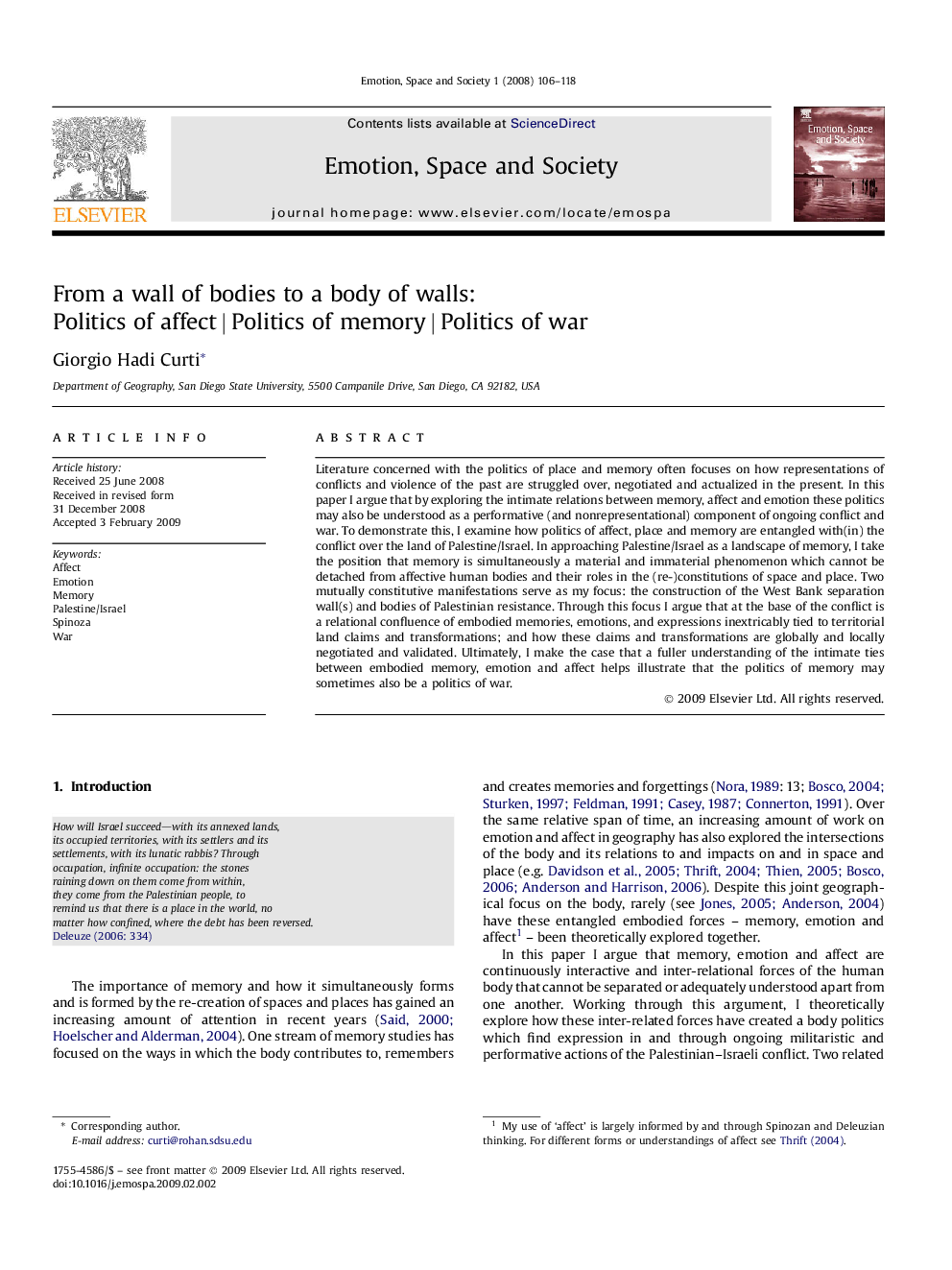| Article ID | Journal | Published Year | Pages | File Type |
|---|---|---|---|---|
| 10468483 | Emotion, Space and Society | 2008 | 13 Pages |
Abstract
Literature concerned with the politics of place and memory often focuses on how representations of conflicts and violence of the past are struggled over, negotiated and actualized in the present. In this paper I argue that by exploring the intimate relations between memory, affect and emotion these politics may also be understood as a performative (and nonrepresentational) component of ongoing conflict and war. To demonstrate this, I examine how politics of affect, place and memory are entangled with(in) the conflict over the land of Palestine/Israel. In approaching Palestine/Israel as a landscape of memory, I take the position that memory is simultaneously a material and immaterial phenomenon which cannot be detached from affective human bodies and their roles in the (re-)constitutions of space and place. Two mutually constitutive manifestations serve as my focus: the construction of the West Bank separation wall(s) and bodies of Palestinian resistance. Through this focus I argue that at the base of the conflict is a relational confluence of embodied memories, emotions, and expressions inextricably tied to territorial land claims and transformations; and how these claims and transformations are globally and locally negotiated and validated. Ultimately, I make the case that a fuller understanding of the intimate ties between embodied memory, emotion and affect helps illustrate that the politics of memory may sometimes also be a politics of war.
Related Topics
Social Sciences and Humanities
Psychology
Social Psychology
Authors
Giorgio Hadi Curti,
